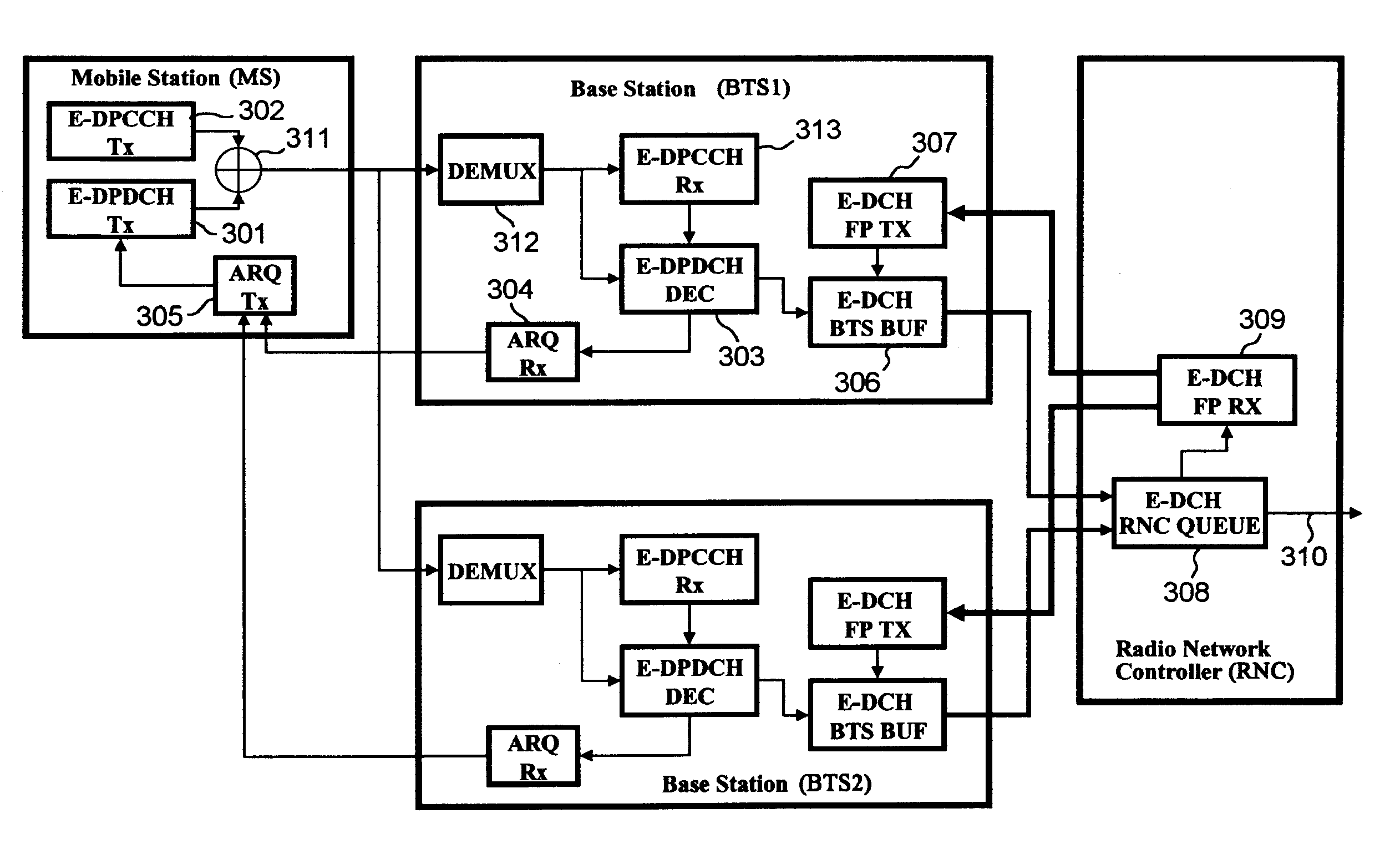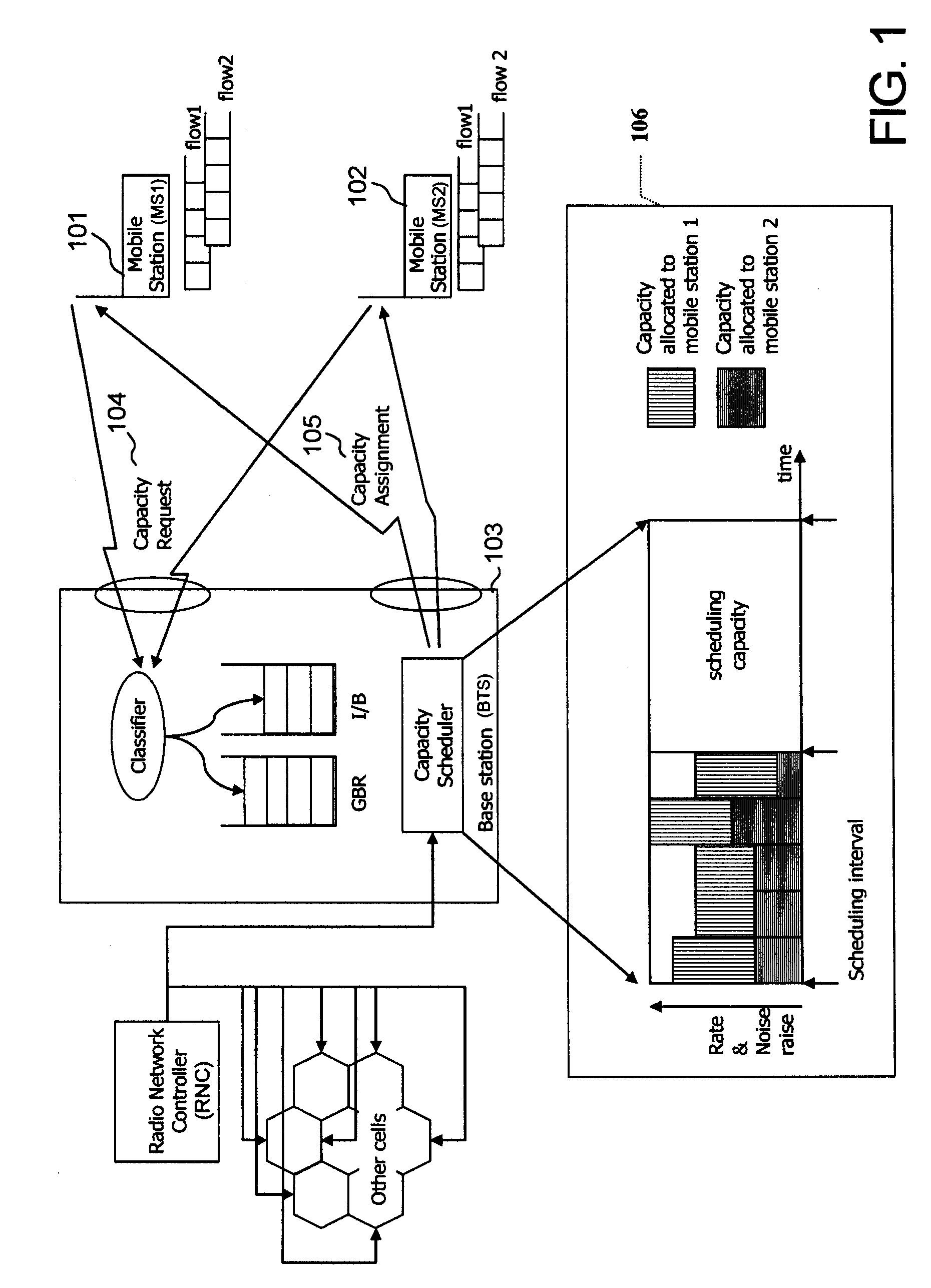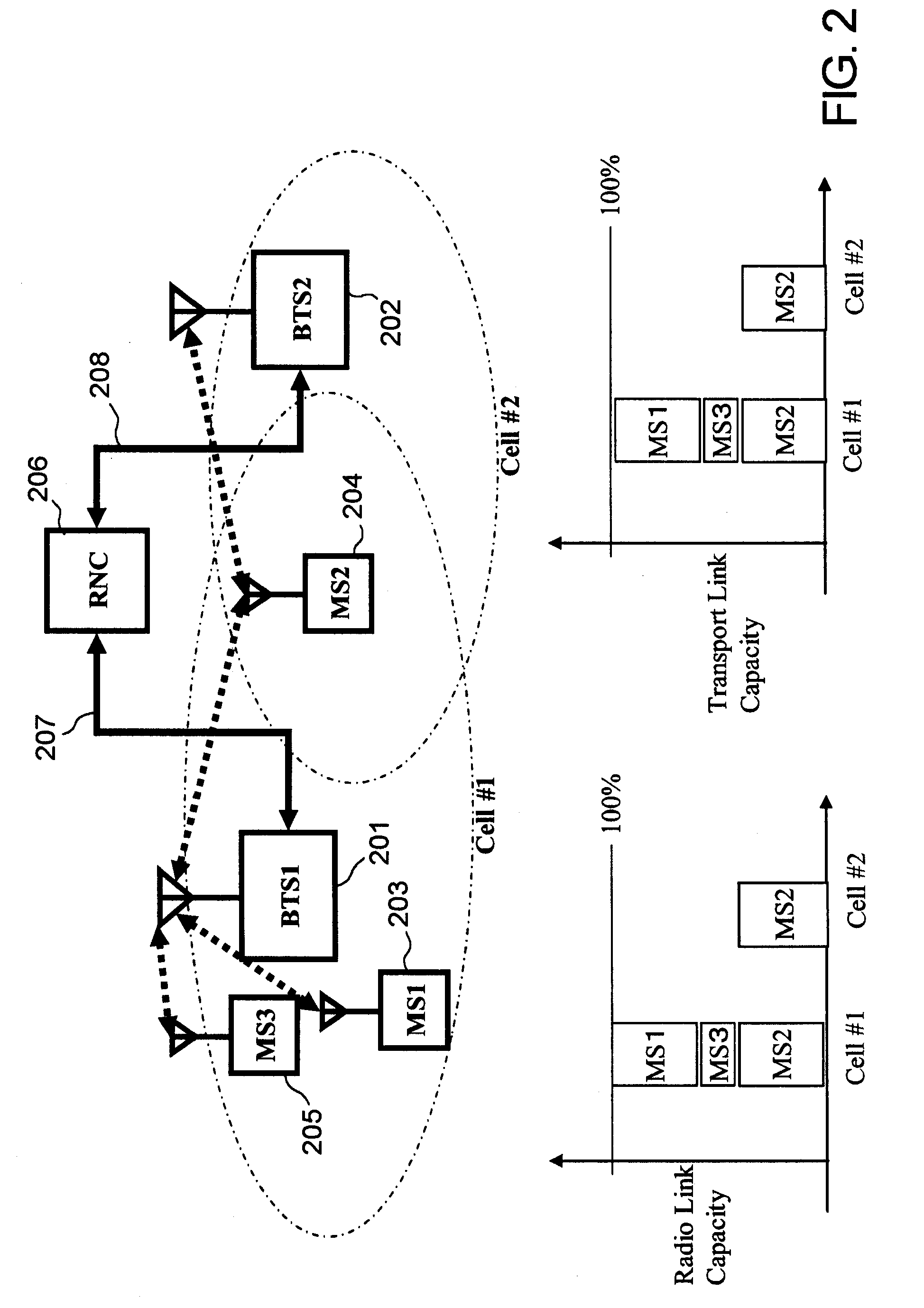Transmission method for uplink transport layer
a technology of transmission method and transport layer, applied in the field of uplink data packet transmission, can solve the problem of limited overall network capacity, and achieve the effect of reducing congestion at the transport layer
- Summary
- Abstract
- Description
- Claims
- Application Information
AI Technical Summary
Benefits of technology
Problems solved by technology
Method used
Image
Examples
first embodiment
[0051]
[0052]FIG. 3 illustrates a system according to the first embodiment. The system is provided with a mobile station (MS) connected to two base stations (BTS1, BTS2) while a radio network controller (RNC) is connected to the base stations. This system diagram is also applicable for the case when a mobile station is connected to more than two base stations. More general speaking, a set of base stations in a network is defined as connected set of base stations for a given mobile station. Furthermore, each mobile station in the network may have a different connected set of base stations. Although one mobile station is illustrated in FIG. 3, the network may have a plurality of mobile stations.
[0053]The mobile station (MS) has uplink data transmission unit (E-DPDCH Tx) 301 for transmitting a data packet to the base station, uplink control information transmission unit (E-DPCCH Tx) 302 for transmitting control information to the base station, downlink ARQ information transmission unit ...
second embodiment
[0075]
[0076]FIG. 8 is a diagram of the system according to the second embodiment. The mobile communication network shown in FIG. 8 comprises mobile station (MS2) 503, two base stations (BTS1, BTS2) 501, 502 and two radio network controllers (DRNC, SRNC) 504, 505. Although one mobile station is illustrated in FIG. 8, the network may have a plurality of the mobile stations.
[0077]The serving radio network controller (SRNC) 504 is a radio network controller controlling the base station (BTS2) 508. The serving radio network controller receives the data packet, from both base stations, sent by the mobile station. The drifting radio network controller (DRNC) 505 is a radio network controller controlling base station BTS1. The drifting radio network controller receives data packets from the base station BTS1 and forwards them to serving radio network controller 504 of the mobile communication network. Three transport links 506 to 508 are established between the base stations and serving rad...
PUM
 Login to View More
Login to View More Abstract
Description
Claims
Application Information
 Login to View More
Login to View More - R&D
- Intellectual Property
- Life Sciences
- Materials
- Tech Scout
- Unparalleled Data Quality
- Higher Quality Content
- 60% Fewer Hallucinations
Browse by: Latest US Patents, China's latest patents, Technical Efficacy Thesaurus, Application Domain, Technology Topic, Popular Technical Reports.
© 2025 PatSnap. All rights reserved.Legal|Privacy policy|Modern Slavery Act Transparency Statement|Sitemap|About US| Contact US: help@patsnap.com



